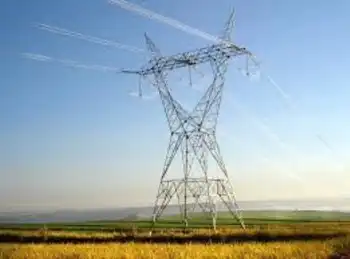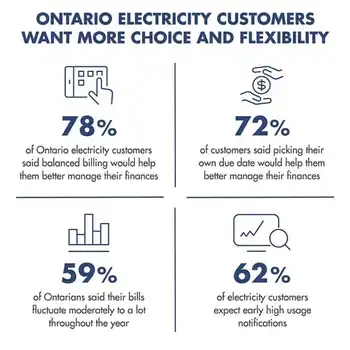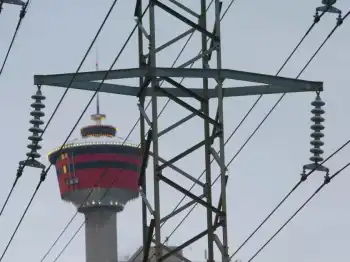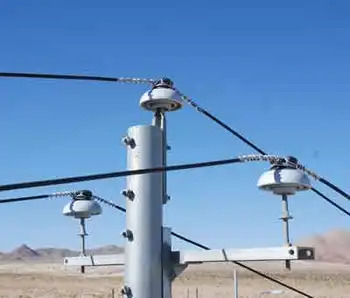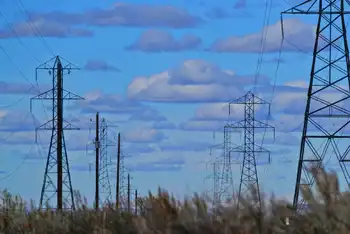Toronto Flood Cleanup details the citywide response to storm damage after heavy rain, stressing drainage system upgrades, emergency services, transit disruptions, infrastructure repair, financial aid, insurance claims, and climate resilience planning for future weather.
Key Points
Toronto Flood Cleanup is the city's flood response, restoring infrastructure, aiding residents, and upgrading drainage.
✅ Emergency services and public works lead debris removal.
✅ Repairs to roads, bridges, transit, and utilities underway.
✅ Aid, insurance claims, and drainage upgrades prioritized.
Toronto is grappling with significant cleanup efforts following severe storms that unleashed heavy rains and caused widespread flooding across the city. The storms, which hit the area over the past week, have left a trail of damage and disruption, prompting both immediate response measures and longer-term recovery plans.
The intense rainfall began with a powerful storm system that moved through southern Ontario, with Sudbury Hydro crews working to reconnect service as the system pressed toward the GTA, delivering an unprecedented volume of water in a short period. The resulting downpours overwhelmed the city's drainage systems, leading to severe flooding in multiple neighborhoods. Streets, basements, and parks were inundated, with many areas experiencing water levels not seen in recent memory.
Emergency services were quickly mobilized to address the immediate impact of the floods. Toronto’s Fire Services, along with other first responders and skilled utility teams, as Ontario recently sent 200 workers to Florida to help restore power, were deployed to assist residents affected by the rising waters. Rescue operations were carried out to help people trapped in their homes or vehicles, and temporary shelters were set up for those displaced by the flooding.
The storm's impact was felt across various sectors of the city. Public transportation services were disrupted, as strong gusts led to significant power outages in parts of the region, with numerous subway stations and bus routes affected by the high water levels. Major roads were closed due to flooding, causing significant traffic delays and affecting daily commutes for many residents. Local businesses also faced challenges, with some forced to close their doors as a result of the water damage.
The city's infrastructure bore the brunt of the storm's fury. Several key infrastructure components, including roads, bridges, and utilities, suffered damage. The city's water treatment plants and sewage systems were stressed by the volume of water, raising concerns about potential contamination and the need for extensive maintenance and repair work.
In the wake of the flooding, the Toronto Municipal Government has launched a comprehensive cleanup and recovery effort. The city's Public Works Department is spearheading the operation, focusing on clearing debris, repairing damaged infrastructure, and restoring essential services, as Hydro One crews restore power to hundreds of thousands across Ontario. Teams of workers are diligently addressing the damage to roads and bridges, ensuring that they are safe for use and functioning properly.
Efforts are also underway to assist residents and businesses affected by the flooding. Financial aid and support programs are being implemented to help those who have suffered property damage or loss, including customers affected by Toronto power outages as repairs continue. The city is working closely with insurance companies to facilitate claims and provide relief to those in need.
In addition to the immediate cleanup, there is a heightened focus on evaluating and improving the city's flood management systems. The recent storms have highlighted vulnerabilities in Toronto’s infrastructure, prompting calls for enhanced flood prevention measures. City officials and urban planners are assessing the current drainage systems and exploring ways to bolster their capacity to handle future extreme weather events.
The storms have also sparked discussions about the broader implications of climate change and its impact on urban areas. Experts suggest that increasingly severe weather events, including heavy rainfall and flooding, may become more common, as seen with Houston's extended power outage after severe storms, as global temperatures rise. This has led to a call for more resilient and adaptable infrastructure to better withstand such events.
Community organizations and volunteers have played a vital role in the recovery process. Local groups have come together to support their neighbors, providing assistance with cleanup efforts, distributing supplies, and offering emotional support to those affected by the disaster. Their contributions underscore the importance of community solidarity in times of crisis.
As Toronto works towards recovery, there is a clear recognition of the need for a comprehensive strategy to address both the immediate and long-term challenges posed by severe weather events. The city’s response will involve not only repairing the damage caused by this storm but also investing in infrastructure improvements, drawing lessons from London power outage disruption cases to harden critical systems, and adopting measures to mitigate the impact of future floods.
In summary, the severe storms that recently struck Toronto have led to widespread flooding and significant disruption across the city. The immediate response has involved extensive cleanup efforts, damage assessment, and support for affected residents and businesses. Looking ahead, Toronto faces the challenge of enhancing its flood management systems and preparing for the potential impacts of climate change. The collective efforts of emergency services, city officials, and community members will be crucial in ensuring a swift recovery and building resilience against future storms.
Related News






